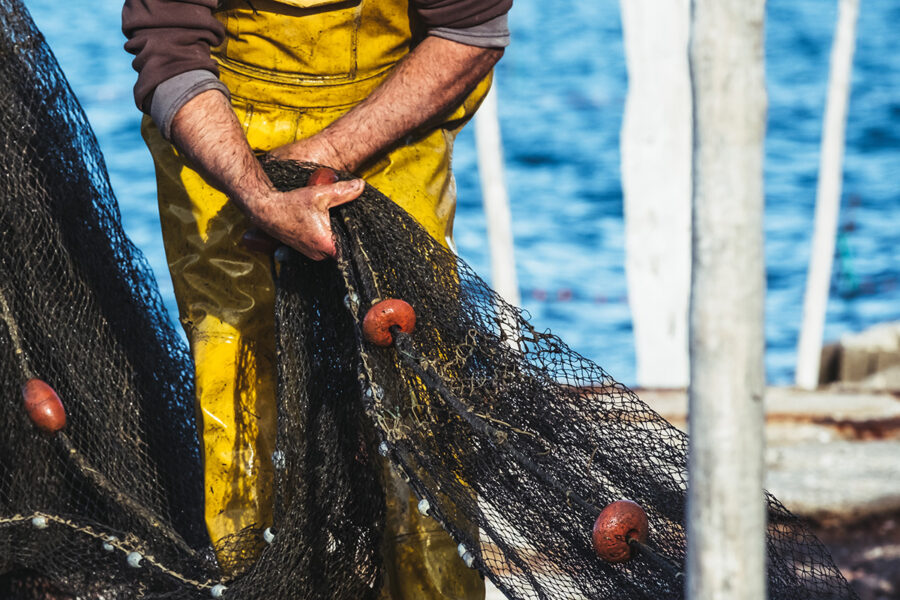A ground-breaking pilot project is being set up in Scotland to protect the welfare of fishing vessel crews and provide them with a route for formal grievance procedures.
The new Worker-Driven Social Responsibility (WSR) programme for UK fishing is the first of its kind in Europe. It has been developed by a partnership including the Scottish White Fish Producers’ Association (SWFPA) and three NGOs: Focus on Labour Exploitation, the International Transport Workers’ Federation (ITF) and the Fair Food Programme.
The SWFPA, along with other partners in the Crew Welfare Alliance, visited an existing Fair Food Programme scheme in Florida to see how it has benefited the entire value chain in the tomato industry there.
The Crew Welfare Alliance has also welcomed reciprocal visits to the UK by those involved in the project, the experiences of which have fed directly into the new pilot.
WSR has been developed to address potential labour abuse in industries ranging from agriculture to textiles. It is designed to address the power imbalances that can exist or develop between workers and employers, as well as between buyers and suppliers. It can also reassure buyers further down the value chain that the products they are buying are produced to best practice.
The project in North East Scotland follows an intensive 12-month planning phase, and has now launched as a two-year pilot scheme. Participation in the project will be entirely voluntary.
In the UK fishing context, the pilot project will seek to address concerns such as those caused by the immigration ‘loophole’ of the seafarers’ transit visa, which means migrant fishermen are not protected by UK employment laws when working on UK vessels outside 12nm.
Mike Park, chief executive of the SWFPA, said: “It’s important that the welfare and well-being of all crew operating on UK fishing vessels is protected to the highest standards possible, that is why we are excited by the potential this initiative delivers.
“Having visited the Fair Food Programme and the Coalition of Immokalee Workers in the tomato fields of Florida, I have great hope that we can replicate the same supporting network here in the UK for all fishermen and fisherwomen.”
He said ITF and others have been working to put together a code of conduct for the industry that provides a third-party audit of treatment of crews, and which has still to be finalised.
“Just now, we come under the cosh of not having people monitor the standards of treatment of crews, responding to grievances or whatever,” he told Fishing News.
“This project applies a third- party audit based on an agreed code of conduct.
“If someone raises a grievance, it would go to the people in charge, who would investigate and decide whether it’s a legitimate grievance, and if so the operator would have to change his practices.”
The project is also a response to the report by Nottingham University, published in May 2022, that was highly critical of the treatment of some foreign crew on UK fishing vessels.
“The problem,” Mike Park said, “is that it would just take another couple of bad stories about bad treatment of crew or whatever, and the industry’s in trouble.
“Fishing is a unique industry that operates away from home. There are some peculiarities we have to make sure we can deal with, but at the end of the day we need to support workers.
“That already applies in factories throughout the country and elsewhere, and all we’re trying to do now is to put in similar structures to ensure the protection of the worker.
“SWFPA Crew Services is creating an app that will give crews access to a number of things, including their own certificates, but it will also give them a direct grievance procedure online. There will be a lot of grievances raised that won’t be grievances, but they will be weeded out by the grievance audit team.
“The thing is that you can’t mark your own homework. If there is an underbelly in there, it’s got to be weeded out by third-party audits.”
He said most boat owners supported the project, as well as retailers, because they need it for their own protection and to reassure their customers that workers in their supply chains are protected and well treated.
The project will involve collaboration between a number of key stakeholders including the SWFPA, the SEA Alliance, which was set up by concerned retailers, human rights experts and local community organisations.
The pilot has secured funding from Humanity United to run for an initial two-year period, commencing last month. It will begin with outreach work with migrant fishermen and active engagement with key industry stakeholders in two key ports, most probably Peterhead and Fraserburgh.
ITF fisheries expert Chris Williams said: “We hope this pilot will be successful and expand over time to ensure all workers, regardless of their nationality or immigration status, are paid fairly and treated with respect for the difficult work they do.”
Dr Jess Sparks, now at Tufts University in Massachusetts, but previously at Nottingham University, where she co- authored the report raising concerns about the treatment of some foreign crew in the UK industry, said: “For too long, the global fishing industry has relied on voluntary standards and initiatives that demonstrably cause further harm to workers.
“WSR has more than 10 years of evidence supporting its effectiveness in eliminating all forms of labour exploitation, and I’m excited to see UK fisheries be world-leading in implementing the first WSR programne in fishing.”
This story was taken from the latest issue of Fishing News. For more up-to-date and in-depth reports on the UK and Irish commercial fishing sector, subscribe to Fishing News here or buy the latest single issue for just £3.30 here.
Sign up to Fishing News’ FREE e-newsletter here.








